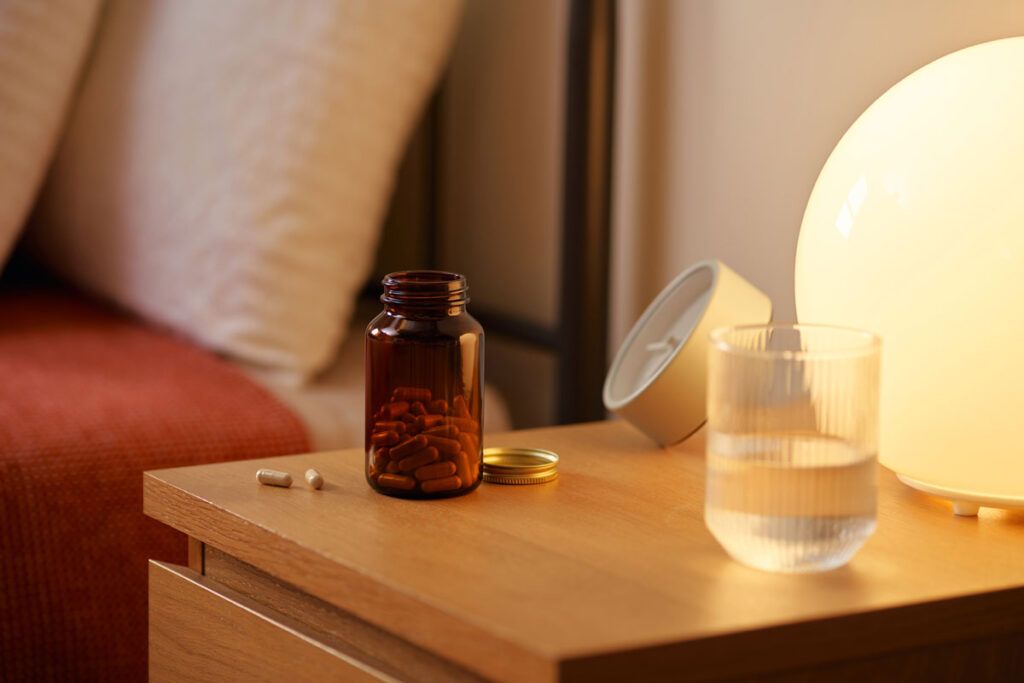Ashwagandha, or Indian ginseng, is an herb. It comes from the extracts of the Whitania somnifera root, which grows in the region of Southeast Asia.
This Ayurvedic herb has been used for thousands of years to reduce stress and increase energy. It has multiple benefits, such as helping to manage blood sugar levels and relieve pain.
It’s important to remember that you may not be able to take certain anxiety medications alongside ashwagandha. If you’re considering taking this herb to help with anxiety symptoms, it’s important to speak with a healthcare professional first.
Can ashwagandha be effective?

Anxiety is one of the most common mental health conditions. It affects about 301 million people worldwide. Of those, 40 million are adults in the United States, according to the Anxiety & Depression Association of America (ADAA).
Anxiety and stress have a close link. When you experience stress, your body releases the fight-or-flight hormones known as adrenaline and cortisol. Anxiety is a reaction to stress.
When stress becomes chronic and anxiety becomes persistent, it can turn into a mental health condition like generalized anxiety disorder (GAD). About 7 million people have GAD in the United States, the ADAA reports.
Research has shown the effectiveness of ashwagandha in reducing stress and anxiety. A 2020 research review suggests that the root extract effectively helps you manage anxiety, chronic stress, and other mental health conditions like schizophrenia and obsessive-compulsive disorder.
And according to a 2019 study, ashwagandha works to reduce stress and anxiety by lowering the levels of cortisol in the body.
How to take ashwagandha?
Ashwagandha is available in several forms, such as capsules, liquid, and powder. There is no recommended dosage of ashwagandha. The amount needed can vary depending on the condition you wish to treat.
A 2022 study found that ashwagandha was effective in reducing stress in a dosage of 300–600 milligrams (mg) per day. The same study also found that it could help manage anxiety with a dosage of up to 12,000 mg per day. But other studies, such as one from 2019, have recommended lower dosages.
It is important to remember that ashwagandha is considered a dietary supplement, not a medication. This means it is not regulated by the Food and Drug Administration (FDA). Before taking ashwagandha to relieve stress and manage anxiety, consider talking with a healthcare professional.
Side effects of ashwagandha
Ashwagandha is mostly considered safe, with minimal and mild adverse effects. The extract can cause some digestive side effects when taken in large quantities and doses. These include:
- stomach pain
- loose stool
- constipation
- nasal congestion
- nausea
- low appetite
- drowsiness
There have also been reports of liver damage from taking ashwagandha, but 2019 research points out that this is a rare occurrence. It’s also worth noting that Denmark has banned the supplement because of its potential negative effects on thyroid and sex hormones.
Before including this supplement in your routine, consider talking with a healthcare professional. They can help you understand whether it will be a suitable treatment option for you.
Other treatment options
Several treatment options are available to help you manage anxiety symptoms, such as medications, therapy, and lifestyle strategies.
Medications
Certain medications can help treat anxiety by increasing the amount of serotonin in the brain and suppressing the fight-or-flight response.
Examples include:
- tricyclic antidepressants such as,
- clomipramine (Anafranil)
- imipramine (Tofranil)
- nortriptyline (Pamelor)
- protriptyline (Vivactil)
- trimipramine (Surmontil)
- serotonin reuptake inhibitors (SSRI) like sertraline (Zoloft)
- benzodiazepines like diazepam (Valium) and lorazepam (Ativan)
If you need help covering the cost of medications, the free Optum Perks Discount Card could help you save up to 80% on prescription drugs. Follow the links on drug names for savings on that medication, or search for a specific drug here.
